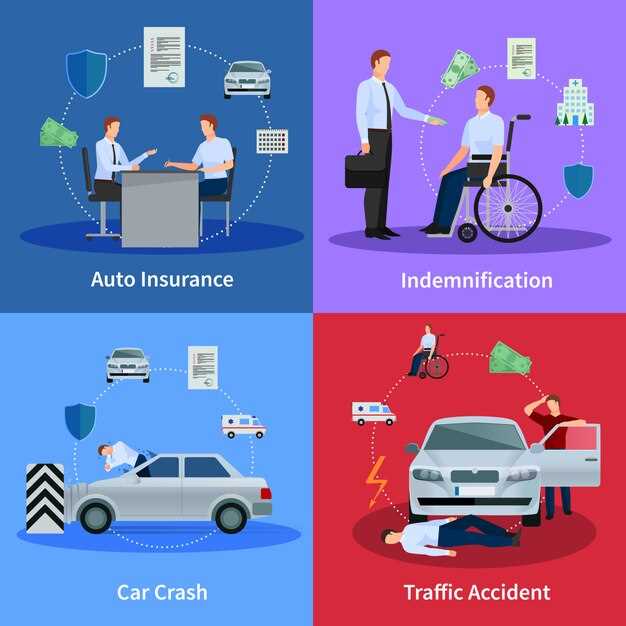

Motorcycle insurance is an essential aspect of owning and operating a motorcycle, providing financial protection and peace of mind. Among the different types of coverage available, liability and comprehensive insurance are two key categories that every rider needs to understand. Each type of coverage serves distinct purposes and offers varying levels of protection, which can profoundly impact a motorcyclist’s experience on the road.
Liability insurance focuses primarily on protecting other parties in the event of an accident where you are at fault. It covers bodily injury and property damage that you may cause to others, ensuring that you meet the legal requirements for motorcycle insurance in your state. This type of coverage is crucial for safeguarding your financial health should an accident occur, as it prevents you from being personally liable for significant costs resulting from medical bills or vehicle damage.
On the other hand, comprehensive insurance provides broader coverage that goes beyond just liability. It protects your motorcycle against a variety of non-collision incidents, such as theft, vandalism, natural disasters, and even animal strikes. Understanding the differences between these two types of insurance will help you make informed decisions that align with your individual needs and circumstances as a motorcyclist.
Key Differences Between Liability and Comprehensive Coverage
Understanding the distinctions between liability and comprehensive motorcycle insurance coverage is essential for riders. Each type of insurance serves a specific purpose and comes with different protections. Here are the key differences:
- Scope of Coverage:
- Liability Coverage: Primarily protects you against claims for bodily injury and property damage you cause to others in an accident.
- Comprehensive Coverage: Offers protection against non-collision events such as theft, vandalism, natural disasters, and hitting an animal.
- Requirement:
- Liability Coverage: Generally required by law in most states for motorcycle operation.
- Comprehensive Coverage: Not mandatory but highly recommended for added peace of mind.
- Financial Protection:
- Liability Coverage: Covers damages and legal fees related to your liability in an accident.
- Comprehensive Coverage: Reimburses you for the loss or damage to your motorcycle due to unforeseen circumstances.
- Deductibles:
- Liability Coverage: Typically does not have deductibles; it pays out based on the claims made against you.
- Comprehensive Coverage: Usually involves a deductible that you must pay before insurance kicks in for covered losses.
- Premium Costs:
- Liability Coverage: Generally lower premiums since it covers only damages caused to others.
- Comprehensive Coverage: Higher premiums due to the broader range of protections provided.
Ultimately, the choice between liability and comprehensive coverage depends on individual needs and risk assessment. Understanding these differences helps riders select the right insurance policy for their motorcycle.
When to Choose Liability Insurance for Your Motorcycle

Liability insurance is essential for motorcycle riders who want to meet legal requirements and protect their finances in the event of an accident. This type of insurance covers damages you may cause to other people and their property while riding your motorcycle. If you prioritize affordability and are primarily concerned about fulfilling state regulations, liability insurance is a suitable option.
Choosing liability insurance is particularly advisable for those who own older motorcycles or bikes with lower market value. Comprehensive insurance, while offering broader protection, may not be cost-effective for less valuable vehicles. In such cases, limiting coverage to liability protects against costly premiums while still complying with the law.
If your riding habits include occasional use rather than daily riding, liability coverage can make financial sense. For infrequent riders, the risk of accidents may be lower, making liability insurance a more viable option. Additionally, if you have significant personal assets to protect, liability coverage provides a safety net against claims that could arise from accidents.
Ultimately, if minimizing costs and legal compliance are your top priorities, liability insurance stands out as a practical choice. It ensures you meet minimum requirements while allowing you to budget wisely for your motorcycle expenses. However, it’s crucial to evaluate your individual circumstances carefully to ensure that this coverage aligns with your needs and provides adequate financial protection.
Comprehensive Coverage: Benefits and Scenarios for Use

Comprehensive motorcycle insurance coverage provides extensive protection beyond the basic liability insurance required by law. Unlike liability coverage, which only pays for damages you cause to others in an accident, comprehensive coverage safeguards your own motorcycle against various non-collision incidents. This includes theft, vandalism, natural disasters, and animal collisions.
One significant benefit of comprehensive coverage is peace of mind. Riders can traverse different environments and weather conditions without worrying excessively about unforeseen events that could damage their motorcycle. For example, if a hailstorm severely damages the bike while parked outdoors, comprehensive insurance would cover the repair costs, ensuring financial relief for the owner.
Additionally, comprehensive coverage proves invaluable in scenarios where the motorcycle may be stolen. Motorcycles are particularly susceptible to theft; therefore, having this insurance can mitigate the financial loss incurred if your bike is not recovered. It also covers damages resulting from vandalism, further protecting your investment.
Comprehensive coverage is especially beneficial for those living in regions prone to natural disasters, such as hurricanes or floods. In such cases, riders can receive compensation for damages, allowing them to replace or repair their motorcycle without bearing the entire financial burden.
Ultimately, while liability insurance fulfills legal requirements, comprehensive coverage broadens your protection and enhances your riding experience. By evaluating potential risks and considering these scenarios, riders can make informed decisions about their insurance needs, ensuring they are adequately protected in various circumstances.
